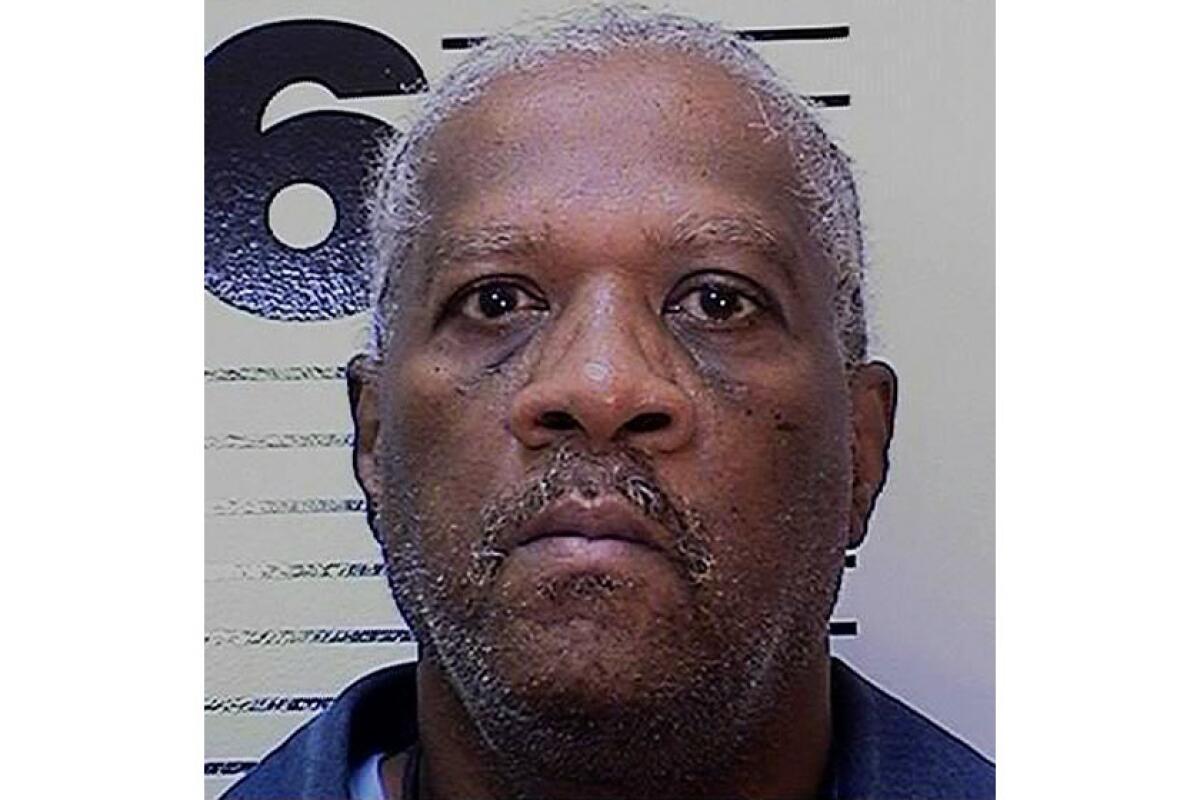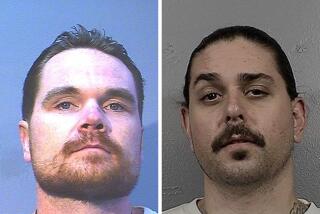Independent investigators reject innocence claim from death row inmate Kevin Cooper

The special counsel appointed by Gov. Gavin Newsom to look into the case of Kevin Cooper, a death row inmate whose decades-old murder conviction fell under fierce scrutiny in recent years, released a report Friday casting aside the prisoner’s long-standing claims of innocence.
“The evidence of Cooper’s guilt,” the report reads, “is extensive and conclusive.”
The 65-year-old inmate, who was convicted in 1985 of fatally stabbing two children and two adults inside a Chino Hills home two years earlier, has long maintained his innocence, arguing that he was framed by San Bernardino Sheriff’s deputies.
The victims were three family members — Doug and Peggy Ryen and their 10-year-old daughter, Jessica — as well as an unrelated boy, 11-year-old Christopher Hughes. The Ryen’s 8-year-old son, Joshua, survived the attack.
In a videotaped statement played for jurors during Cooper’s trial, Joshua, the sole survivor, said he saw just one man or perhaps a shadow in his home. After he was airlifted to the hospital, he told a deputy and a social worker that his attackers were three white men, but he later said that they were Latino. A month after that, he told a deputy that Cooper, who is Black, was not the killer.
As part of the special counsel’s investigation, which included briefings from both Cooper’s attorneys and representatives from the district attorney’s office in San Bernardino County, the investigators evaluated DNA evidence.
Genetic testing showed that Cooper’s DNA was found inside the Ryen home, as well as on cigarette butts recovered from a station wagon stolen from the family’s home after the slayings, according to the 243-page report. There wasn’t any DNA evidence, the report said, that “points to any other person as the culprit.”
“There is no reasonable possibility that more investigation beyond what has already been conducted in this matter could affect the conclusion that evidence of Cooper’s guilt is conclusive,” the report reads.
In a statement, Cooper’s legal team maintained their client’s innocence and characterized the investigation as “demonstrably incomplete.”
“The special counsel failed to follow the basic steps taken by all innocence investigations,” the statement reads. “We call on the governor to follow through on his word and obtain a true innocence investigation.”
In an interview Friday afternoon, San Bernardino County Dist. Atty. Jason Anderson said he was not surprised by the special counsel’s findings. He was relieved, he added, for the surviving victim, as well as the victims’ relatives.
“Very pleased for them,” Anderson said. “Unfortunately, closure should have come a long time ago.”
Newsom’s decision in 2021 to order an independent investigation came after months of mounting pressure from Cooper’s supporters, some who were moved to act after reading about the case in an Opinion article in the New York Times in 2018.
The newspaper’s in-depth examination cited both an appeals court judge saying Cooper had been framed by sheriff’s deputies and a former leader in the FBI’s Los Angeles office saying he believed Cooper was innocent and that the case involved “abject racism.” During a hearing in Cooper’s case, the New York Times report noted, a crowd displayed racist signs, and one man displayed a noose around a stuffed gorilla.
Several months after the article was published, Cooper’s proclamations of innocence continued to gain traction, including winning the support of Kim Kardashian, who tweeted that she’d met with Cooper on death row and believed he’d been wrongfully convicted.
In March 2021, the NAACP Legal Defense and Education Fund sent Newsom a letter urging him to launch an investigation, noting that exonerations are disproportionately likely to result from cases involving Black defendants and white victims.
“No one should serve decades in prison, much less on death row, absent confidence in their conviction,” the letter read.
Two months later, Newsom appointed the international law firm of Morrison Foerster to serve as special counsel to the state Board of Parole Hearings, which is responsible for investigating clemency matters.
In the report released Friday, the special counsel noted they had not addressed several factors deemed outside the scope of their assignment, including whether Cooper’s trial had been unfair and whether the charges lodged against him or the jury’s verdict had been “improperly influenced by Cooper’s race.”
They also didn’t investigate Cooper’s allegations of prosecutorial or law enforcement misconduct, they noted, except in instances in which they determined that they were relevant to Cooper’s claim of innocence.
Cooper’s legal team said in their statement that they had uncovered seven instances of violations of the so-called Brady rule during Cooper’s prosecution.
More to Read
Sign up for Essential California
The most important California stories and recommendations in your inbox every morning.
You may occasionally receive promotional content from the Los Angeles Times.










